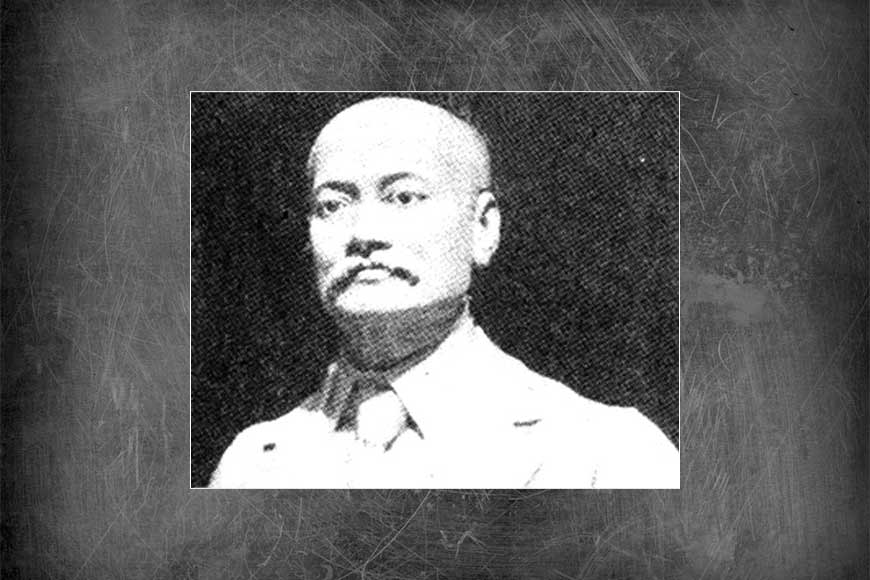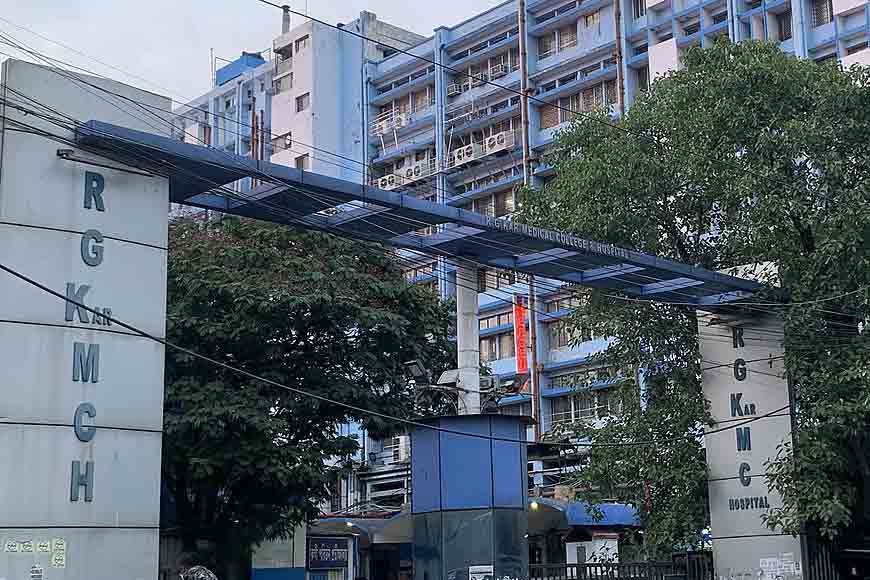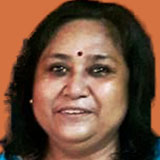Dr. R.G. Kar: A visionary who made healthcare available to all – GetBengal story

Dr. Radha Gobinda Kar
August 23 this year marked the 172nd birth anniversary of visionary, philanthropist, and dedicated physician, Dr. Radha Gobinda Kar, aka Dr. R.G. Kar, whose contributions to medical education and efforts to make healthcare accessible to all remain a testament to his pioneering spirit. His life's work laid the foundation for modern medical education in Bengal, and his vision continues to impact generations of medical professionals in India.
Dr. Kar, alongside prominent physicians, including Drs. Mahendranath Banerjee and Aukshoy Kumar Dutta, established the Calcutta School of Medicine on October 18, 1886, motivated by the desire to establish a contemporary medical facility in Calcutta free from British colonial control. Since its founding, the school has had many highs and lows. On May 12, 1948, the facility was renamed 'R.G. Kar Medical College and Hospital' in honour of Dr. Radha Gobinda Kar, who came up with the original concept.
A medical institution in the heart of Kolkata, R.G. Kar Medical College and Hospital is considered one of the finest government hospitals known for its exceptional healthcare services. From comprehensive medical facilities to expert staff, the hospital plays a crucial role in offering affordable healthcare across a variety of fields. It guarantees medical care for all, with an emphasis on affordability. The hospital provides crucial emergency care and is essential to the city's healthcare system.
Although born into an affluent family of esteemed medical professionals in Betore near Howrah’s Ramrajatola station, Dr. Kar battled against impediments to fulfil his dream. His father, Dr. Durgadas Kar, established Midford Hospital in Dhaka, and his brother, Dr. Radhamadhob Kar, was a distinguished physician and dramatist—a talent shared by Dr. Radha Gobinda Kar as well. He was the eldest of four brothers and five sisters. His father enrolled him in the prestigious Hare School in the heart of Calcutta, which was quite a distance from the family home at Betore. However, Kar Senior was determined to provide the very best education for his son, and from a very young age, Radha Gobindo would travel alone on a horse-drawn carriage every day to school. Later, his father bought a house in Shyambazar to facilitate his journey.

After school, R.G. Kar enrolled at Bengal Medical College (now Kolkata Medical College and Hospital) in 1869 to study medicine, but he dropped out of college after a year. He was an avid theatre enthusiast, and after dropping out of college, he spent some time honing his acting skills and performing on stage.
At the same time, he was captivated by a group of Anglo-Indian gymnasts' performance and decided to form a troupe of Bengali gymnasts. They practiced their act in the Shyambazar house. R.G. Kar himself trained his body and soon became an expert gymnast himself. It was between 1870 and 1879 that Kar got married for the first time. Unfortunately, the marriage lasted for a brief period as his wife passed away a few years later.
In 1880, Kar enrolled himself once again at Bengal Medical College, but he left his studies three years later, in 1883, and sailed to Scotland to complete his education. Finally, in 1886, he received his LRCP&S degree (License of the Royal College of Physicians and Surgeons). Despite encouragement from his mentors to stay back in England and practice there, Dr. Kar decided to return to India, driven by his commitment to serving his country.
The British Government was loath to entrust the health of its officers in the hands of ‘native doctors'. Instead, they wanted trained medical personnel from Europe. But after a while, they realised this was not a practical solution to their problem and so launched an education system that taught western medicine in India. The first medical school in British India was opened exclusively to treat European patients. In 1834, the medical college authorities decided to induct ‘native’ Indians to teach them western medicine. Dr. Kar, however, felt the need for a dedicated Indian hospital and educational institution, and accordingly, on October 18, 1887, Dr. Kar convened a meeting with prominent city doctors, including Dr. Akshay Kumar Dutt, Dr. Mahendra Nath Bannerjee, Dr. Bipin Bihari Maitra, Dr. M.L. Dey, Dr. B.G. Bannerjee, and Dr. Kundal Bhattacharya, to discuss the matter. The physicians agreed to the proposal and entrusted Dr. Kar with this monumental task.
Despite his prestigious qualifications, Dr. Kar preferred to work in challenging conditions. He chose to work directly in underserved areas like Shyambazar, Belgachia, and Dumdum, often travelling by bicycle to treat patients and covering expenses for those unable to afford care. Despite the comfort and opportunities his English education afforded, Dr. Kar’s patriotism led him to risk his life during the severe epidemics that plagued Bengal. In 1899, as Kolkata faced a devastating plague epidemic, Dr. Kar worked tirelessly alongside Sister Nivedita, providing medical care to the afflicted. This partnership highlighted Dr. Kar’s dedication to his mission.
Dr. Kar faced significant challenges in securing land and raising funds for the college. He personally took on the task, going door-to-door among Kolkata’s wealthy and even resorting to begging in the streets. He founded Kolkata Medical School, which was first situated in a rented building at 161, Baithakkhana Bazar Road, before moving to 117, Bowbazar Street. In 1904, the school merged with another academy to become the Calcutta Medical School and College of Physicians and Surgeons of Bengal.
Through sheer determination, Dr. Kar raised enough money, selling all his possessions to purchase 12 bighas (four acres) of land in Belgachia for Rs 25,000, where he built a large hospital costing a whopping amount of Rs 70,000. The original facility had 30 beds. The hospital was later renamed Albert Victor Hospital following a donation from Prince Albert Victor. By 1914, it gained approval from Calcutta University and became Belgachia Medical College, later renamed Carmichael Medical College in honour of Lord Carmichael. After Independence, the institution was renamed RG Kar Medical College by the then chief minister of West Bengal, Dr. Bidhan Chandra Roy, in 1948, in recognition of its founder.
Dr. Kar’s father, Dr. Durgadas Kar, was a pioneer in the field of medical education. He was the first physician to write an elaborate book in Bengali on materia medica (a branch of medical science that studies the sources, nature, properties, and preparation of drugs). R.G. Kar followed his father’s example. Recognising the need for medical literature in Bengali, Dr. Kar began writing medical books in vernacular to make education more accessible to Bengali students. His publications, including Bhishagbandhu (1871), Sankshipta Sharirtantra, and Kar Sanghita, among others, were widely read even by English-speaking medical students. His commitment extended to ensuring affordable access to medicine for all, contributing significantly to the development of indigenous pharmaceutical practices in India, as noted by Acharya Prafulla Chandra Ray in his autobiography.
Dr. Radha Gobinda Kar breathed his last on 19 December 1918, at the age of 66 due to Spanish flu. At the time of his death, he had few personal possessions, having devoted much of his wealth to the medical college. He even donated his Shyambazar home to the institute. Despite the lasting impact of his institution, it has faced its share of controversies and challenges over time. Nevertheless, Dr. Kar’s legacy as a pioneering medical figure and a patriot who selflessly served his country remains indelible.











